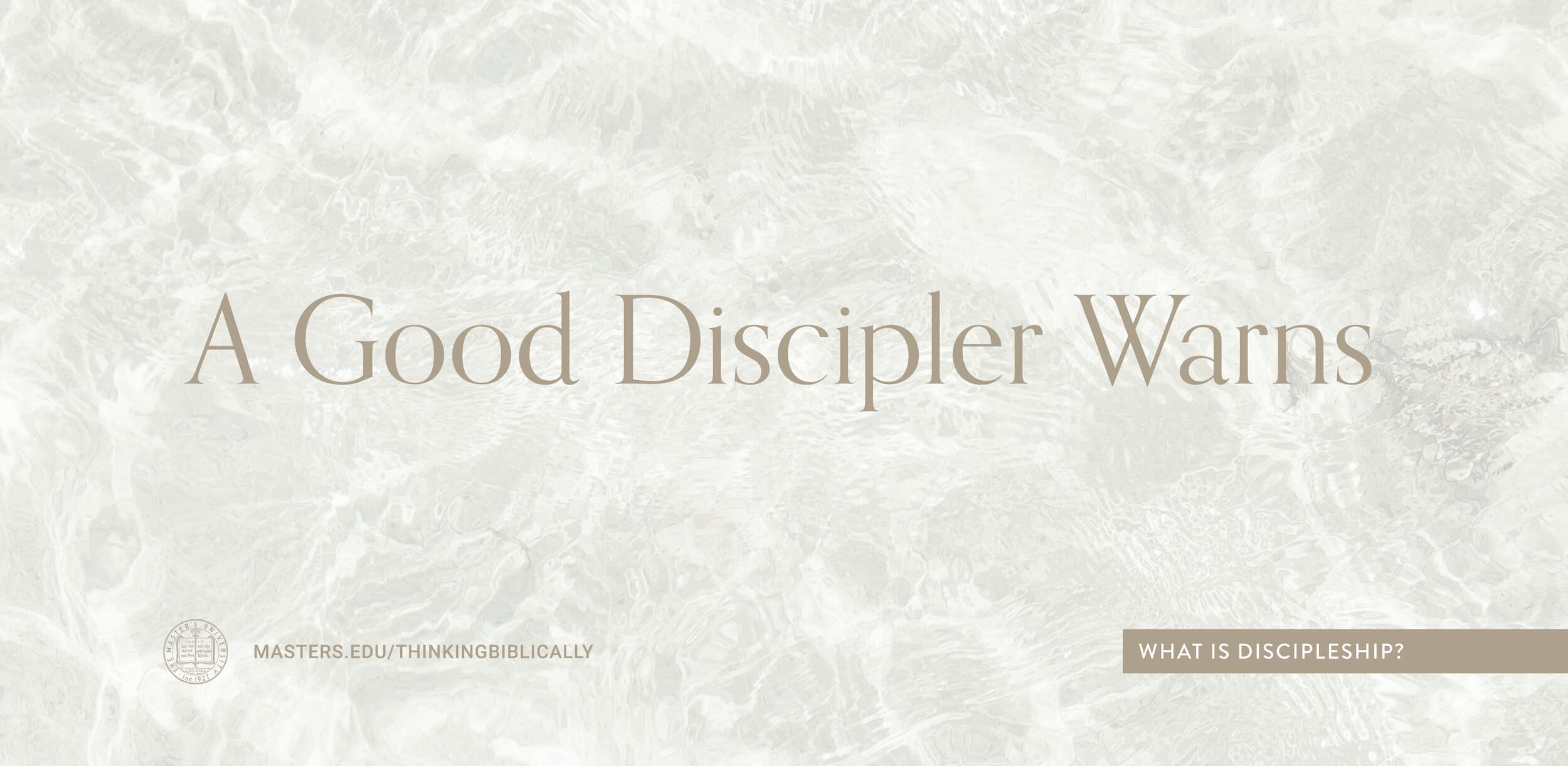
As a father, I warn my children because I love them. Loving parents say things like, “Don’t touch that — it’s hot,” and, “Don’t walk in the street — you might get hit by a car.” We understand that this is a normal expression of love. In the same way, when we are discipling someone, we will warn them. And we will specifically warn them about the dangers of sin. A good discipler doesn’t coddle sin but confronts it in love.
Last time I introduced the idea of discipleship as beginning with spiritual fatherhood. But whether you’re discipling someone you personally led to Christ, or whether you’re being a surrogate parent to someone, a normal part of that relationship will be warning them about sin.
In parts of 1 Corinthians, Paul is very stern with the Corinthians — even sarcastic (1 Corinthians 4:8-10). Why is he talking like this? He isn’t doing it simply to embarrass them. In fact, he says in 1 Corinthians 4:14, “I don’t write these things to shame you, but to admonish you.”
What does it mean to admonish? The Greek verb here is noutheteō. It means to warn or encourage someone in light of impending judgment. To admonish someone is to say, “If you continue to go the way you’re going, the consequences are going to be serious.”
This is why Paul is talking the way he is, and he says so to the Corinthians. He says, “That’s why I’m writing this way to you. I’m warning you about the direction you’re heading in.”
The Corinthians were on a destructive path. There was discord in the church. There was a failure to settle their own squabbles rather than going to worldly pagan courts. They were messed up about singleness. They were messed up about marriage. They were messed up about sex. They were messed up about remarriage. They were confused about meat offered to idols and pagan worship. They were confused about many, many things.
There were all kinds of problems in that church, and Paul is saying to them, “I have to warn you that if you continue on this path, you’re going to face some serious consequences.”
Paul is boldly confronting this church, not because he just wants to shame them over their sin, but because he loves them and wants to protect them from their own actions. And I believe that this is a necessary part of the discipling process. Disciplers should be holding their disciples responsible for virtue.
I have people in my life who call me during the week at set intervals to tell me whether they have committed a certain sin. And they do that because I have set up an agreement with them to hold them accountable not to commit that sin. And some of them have fallen into such deep patterns that they have to call me every couple of days to report in, because I demand that of them. I’ve said, “I want to pray for you and I want to help you get over this sin, and the only way I know to do that is to make you responsible to tell me every time you do it.”
Just like Paul, my purpose isn’t to shame these people. Instead, this relationship of warning and accountability serves as a deterrent to sin, and it helps to break the back of certain habits. We do this with our disciples because we love them, and because we want to keep them from the consequences of sin.
So, the first two ingredients of discipleship are this: a true discipler begets, and a true discipler warns. Next time, I will talk about two more aspects drawn from Paul’s words to the Corinthians.

The Master’s University and Seminary admit students of any race, color, national and ethnic origin to all the rights, privileges, programs, and activities generally accorded or made available to students at the school. It does not discriminate on the basis of race, color, national and ethnic origin in the administration of its educational policies, admissions policies, scholarship and loan programs, and athletic and other school-administered programs.
21726 Placerita Canyon Road
Santa Clarita, CA 91321
1-800-568-6248
© 2025 The Master’s University Privacy Policy Copyright Info
| Cookie | Duration | Description |
|---|---|---|
| cookielawinfo-checkbox-analytics | 11 months | This cookie is set by GDPR Cookie Consent plugin. The cookie is used to store the user consent for the cookies in the category "Analytics". |
| cookielawinfo-checkbox-functional | 11 months | The cookie is set by GDPR cookie consent to record the user consent for the cookies in the category "Functional". |
| cookielawinfo-checkbox-necessary | 11 months | This cookie is set by GDPR Cookie Consent plugin. The cookies is used to store the user consent for the cookies in the category "Necessary". |
| cookielawinfo-checkbox-others | 11 months | This cookie is set by GDPR Cookie Consent plugin. The cookie is used to store the user consent for the cookies in the category "Other. |
| cookielawinfo-checkbox-performance | 11 months | This cookie is set by GDPR Cookie Consent plugin. The cookie is used to store the user consent for the cookies in the category "Performance". |
| viewed_cookie_policy | 11 months | The cookie is set by the GDPR Cookie Consent plugin and is used to store whether or not user has consented to the use of cookies. It does not store any personal data. |